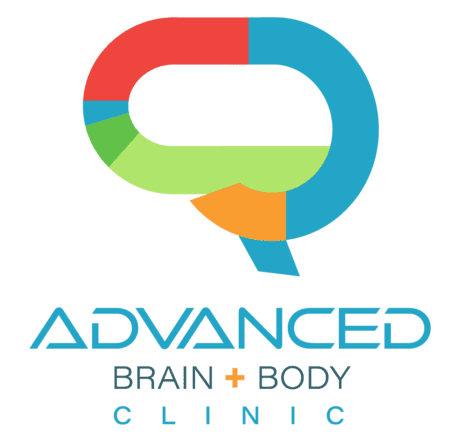Know the difference between a ketamine clinic and a ketamine shop
Matthew Perrone, an Associated Press reporter, recently wrote Prescriptions For Ketamine Have Soared in Recent Years, Despite Little Research or Regulation. This article paints an alarming picture of ketamine use in pain management. Perrone suggests ketamine for pain could morph into the next opioid crisis. Ketamine helps with depression, anxiety, and PTSD when used correctly, despite some concerns from Perrone.
Ketamine therapy help stabilize patients with severe depression who have not found relief from other medications or therapies. Despite their life-saving qualities, these medication can be dangerous if they are not used carefully.
It is crucial to understand that ketamine therapy should not be used as a standalone solution. The key lies in integrating these medications into a comprehensive mental healthcare plan. A comprehensive plan may include counseling, TMS, VNS, or healthy lifestyle changes.
One of the concerns raised by Perrone is the lack of research and regulation surrounding ketamine use. It is true that more studies are needed to fully understand the long-term effects and potential risks associated with these medications. However, the medical community is actively gathering more data on these medications and has already established safety standards for safe use.
In the meantime, healthcare professionals must exercise caution and closely monitor patients who are prescribed ketamine for depression. Regular check-ins, thorough assessments, and open communication are essential to ensure patient safety. Additionally, patients should be educated about the risks of ketamine and adverse effects to watch for.
The increasing use of ketamine and Spravato in pain management and mental healthcare is a significant development. Ketamine prescribers who do not follow the current safety standards put their patients at risk. Plus, they spread fear that may prevent others from seeking help for depression.
Ketamine and Spravato are powerful drugs. When used correctly, the benefits are greater than the risks.
If you or someone you know is considering ketamine for depression, be wary of where you get it. Not all ketamine clinics are equal. Here’s what to look for in a provider who offers ketamine for depression:
- Commitment to proven safety standards. There are well-established safety guidelines for ketamine. To be confident in the safety of your treatment, find a provider that follows the Risk Evaluation and Mitigation Strategy (REMS) protocol. The REMS protocol was developed for the FDA-approved nasal spray Spravato, which is a derivative of ketamine. They should also be compliant with the stringent American Psychiatric Association guidelines for providing ketamine/esketamine.
- Full-spectrum care. Avoid “ketamine shops” that focus on ketamine alone. To find long-term help for depression, anxiety, or PTSD, look for a clinic that offers various mental health treatments. Other treatments to look for include transcranial magnetic stimulation (TMS), vagal nerve stimulation (VNS), electroconvulsive therapy (ECT), medication management, lifestyle medicine, and psychotherapy. The clinicians in those clinics can help you develop a treatment plan out of the many options available that best meets your needs.
- Psychiatrist oversight. See a psychiatrist who offers ketamine as part of comprehensive mental health treatment. Psychiatrists can handle potent medications and understand when to use them safely. Psychiatrists also know how to handle psychological complications that may arise from mental illnesses and their treatments. Clinicians who lack either or both of these skill sets may endanger severely depressed patients by mistake.
- In-office treatments only. To prevent addiction and abuse problems, we only give ketamine treatments in our Minneapolis ketamine clinic. This is one of the many guidelines we follow from the FDA and the American Psychiatric Association. If ketamine is given outside of an office setting, this is a red flag. The provider does not follow the set safety standards.
- Emphasis on a medically safe and comfortable treatment experience. Your provider can help you have a positive experience by providing a safe, warm, and comfortable environment. We recommend that our patients avoid using electronics and listen to peaceful music without lyrics. Your ketamine Minneapolis provider at ABBC can adjust your dosage if you experience negative side effects.
Ketamine/esketamine is a life-changing drug for people with treatment-resistant depression, anxiety and other mental health conditions. We hope this gives you assurance that if try ketamine, you’re not headed into uncharted territory. Ensure your mental health team is experienced, capable of handling complex conditions and medications, and adheres to comprehensive safety guidelines.
To see if ketamine/esketamine is right for you, give Advanced Brain + Body Ketamine TMS Minneapolis a call: 612-682-4912.

Stephen Manlove, MD graduated from the University of Minnesota Medical School and completed residencies in Psychiatry and Internal Medicine through the University of Virginia Medical School. He holds multiple board certifications in psychiatry/neurology, internal medicine and forensic psychiatry. This deep understanding of medicine gives him a unique ability to practice truly holistic psychiatry—fusing lifestyle changes and brain health best practices with genetic testing and a detailed laboratory workup to develop a personalized plan for each patient. As an early adopter of transcranial magnetic stimulation (TMS) and ketamine/Spravato, he and the Advanced Brain + Body team have helped thousands of patients suffering from treatment resistant depression, anxiety and PTSD.

